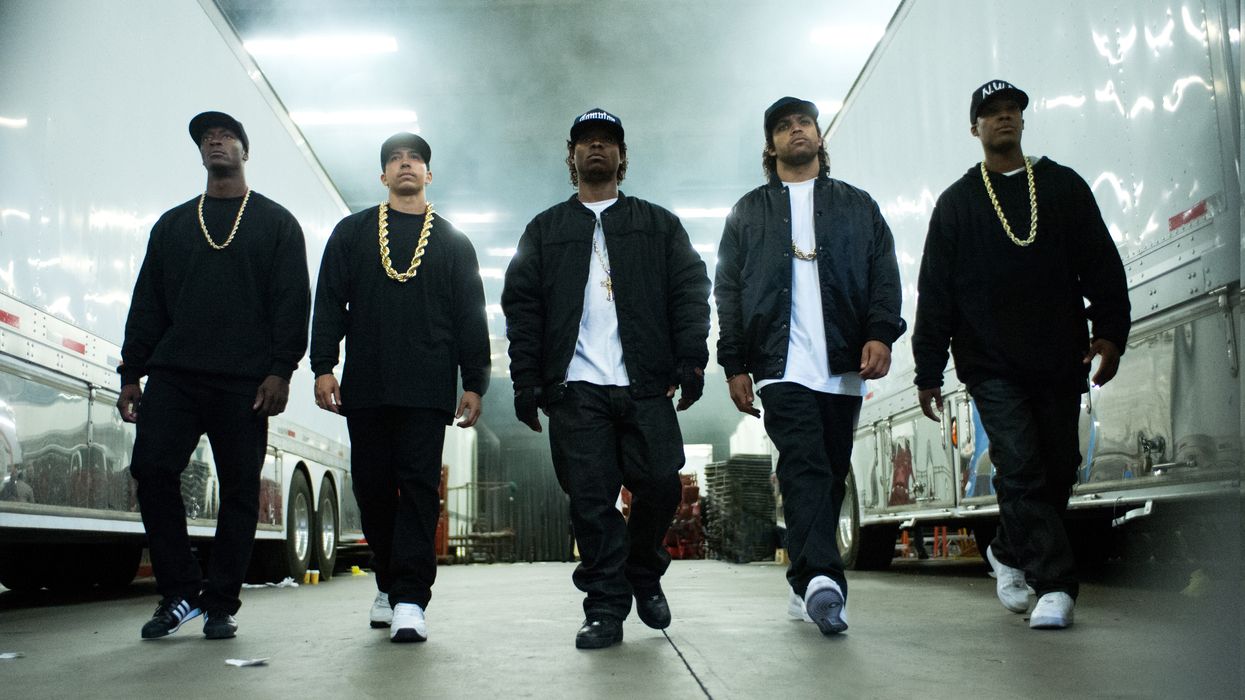The Art of the Edit: 6 Lessons on Making the Cut as an Editor
Sit in on Adobe's micro-session between some of Hollywood's most talented editors as they discuss the ins and outs of the craft.

The Toronto International Film Festival held a special "MICROSESSION" at this year's event called "The Art of the Edit" which allowed attendees to pick the brains of some of the most exciting editors in the industry. Hosted by Adobe, the panel, which included editors Billy Fox (Only the Brave, Straight Outta Compton, Footloose, Band of Brothers), Tyler Nelson (Mindhunter, Gone Girl, The Social Network), and Simone Smith (Never Steady, Never Still), discussed a wide range of topics but they all coalesced to reveal what it takes to be an editor that is both a masterful technician and an inspiring artist.
You can watch the hour-long discussion below, but continue on for our takeaways.
Getting closer to your footage
Editor Billy Fox makes an interesting observation about the importance of comfort and familiarity when editing. He explains that it's important for all editors to "get close" to the footage they're working with and one way to do it is by making sure your workspace is as conducive to your work style as possible. Change your monitors, your speakers, your NLE, your chair, the lighting in your office—whatever—to ensure that there is nothing that pulls your focus from the timeline. Without these distractions, you'll be able to achieve a higher level of intimacy with your work.
Make it work
There are no do-overs once you receive all of the raw footage and other assets. This is true for all editors, but especially for those working on independent/low-budget films where reshoots are an option too expensive for filmmakers to afford. This is why editor Simone Smith challenges editors to really "make the footage work" and make due with what they have. Many times the editor is the failsafe of a production, so don't be surprised if you're expected to work a few miracles during your career.
Recalibration is key
Every project is different and often requires different approaches to editing. As an editor, you'll be a lot more effective and desirable if you know how to recalibrate your methods and approach so your final product is something that satisfies your director.

Should you follow the director or yourself?
This is one of those philosophical questions that many different kinds of filmmakers get asked: should your work reflect your vision or that of the director? All three panelists offer different insight: Fox says he finds more success not basing his work on the director's work and trusting his instincts, while Smith opts for comparing her notes with the director's notes to find out where they agree and disagree on her editorial decisions, and Nelson's take lands right in the middle: communication is key. If your director wants you to take the reins on the edit, do it. If your director wants you to follow their vision, do it. There is usually always space for you to use your creativity and expertise when editing a project, but at the end of the day, you're there to help bring the director's ideas to life
Know your tech
Being the master of all of your editorial tools is an important part of being a skilled editor. If you're unfamiliar with your tech—and people know it—then you're far less to be relied upon to get the job done. Smith makes a good point when she says that many times your team will look to you to not only edit, but supervise post. This means that you'll need to really know how things work, from ingestion to delivery.
What do you do when everything is going wrong?
We've all been there. We're editing a project and nothing is fitting together the way you want it to, the deadline is inching closer and closer, but you've got a pile of hot garbage on your desk and you have no idea what to do. Fox gives a single word of advice for any editor who finds themselves in this position: Simplify.











